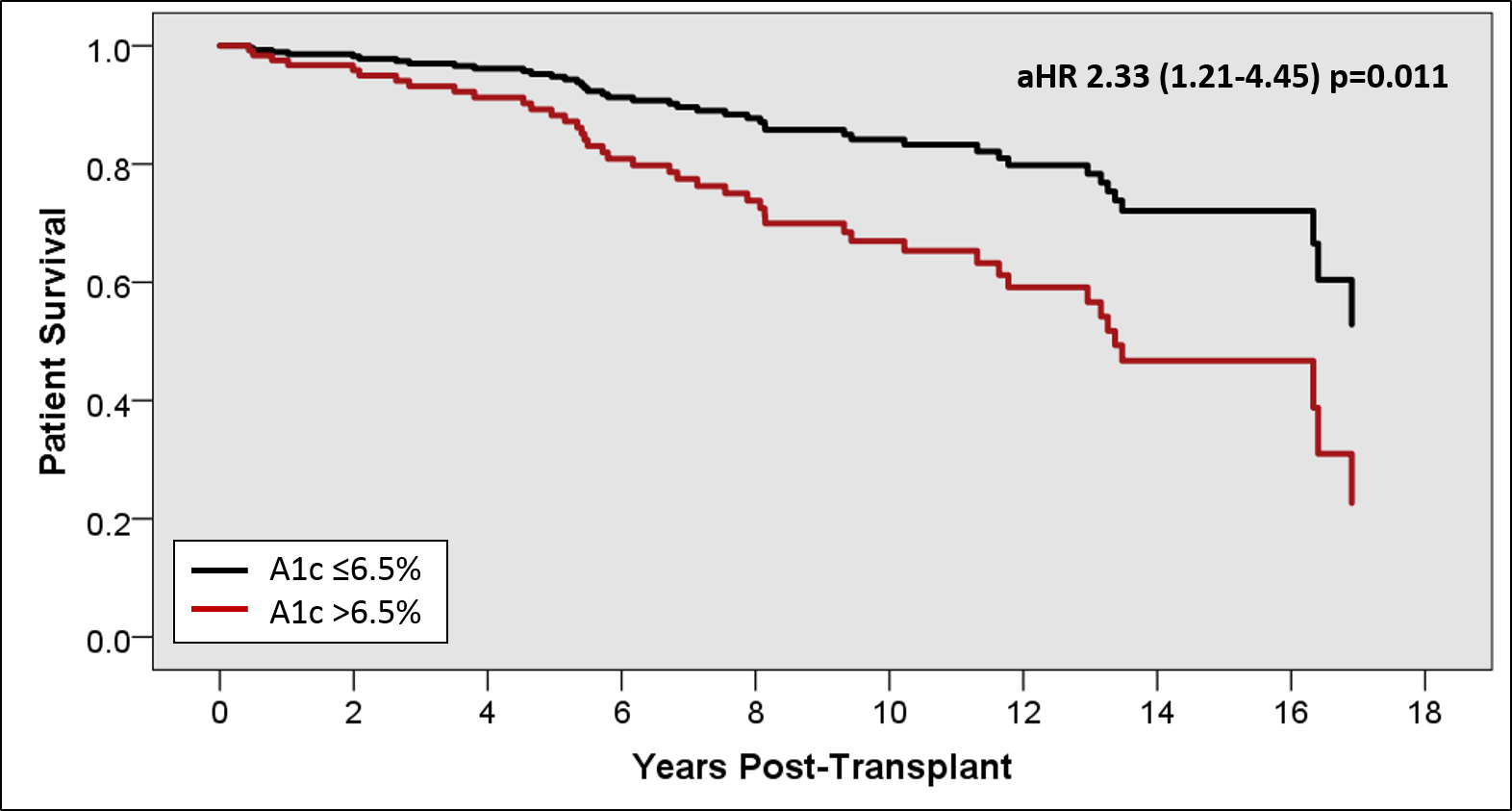Impact of Glycemic Control on Long Term Graft and Patient Outcomes after Pancreas Transplantation
1Transplant Surgery, Medical University of South Carolina, Charleston, SC, 2Central Michigan University, Mount Pleasant, MI
Meeting: 2019 American Transplant Congress
Abstract number: D274
Keywords: Kidney/pancreas transplantation, Outcome, Pancreas transplantation
Session Information
Session Name: Poster Session D: Pancreas and Islet: All Topics
Session Type: Poster Session
Date: Tuesday, June 4, 2019
Session Time: 6:00pm-7:00pm
 Presentation Time: 6:00pm-7:00pm
Presentation Time: 6:00pm-7:00pm
Location: Hall C & D
*Purpose: Successful pancreas transplantation (PTX) has been demonstrated to be efficacious in improving quality of life, eliminating diabetic complications and potentially curing diabetes. However, the effect of glycemic control after transplant on graft and recipient outcomes are not well described in the literature.
*Methods: Single-center, retrospective longitudinal cohort study included 171 adult PTX transplanted between 2001 and 2018. Detailed demographics, postoperative clinical variables and outcomes were abstracted from electronic health records. Univariate statistics and multivariable cox regression were used to assess the influence of glycemic control on long term outcomes. Subjects were divided into two groups using a mean follow-up HbA1C cutoff of ≤6.5% (68/171, 39.8%) vs >6.5 (103/171, 60.2%).
*Results: 171 PTX recipients were included with a mean follow-up of 8.1±4.8 yrs; mean age was 41±9 yrs, 39% female and 44% were AA. The mean BMI was 25±4 kg/m2; 74% of patients received SPK transplants. The incidence of biopsy proven acute kidney rejection was 14% whereas 19% developed pancreas rejection. Recipients with HbA1C >6.5 had significantly higher incidence of kidney rejection (22% vs 9%; p=0.014), pancreatic rejection (34% vs 10%; p<0.001), pancreatic graft failure (56% vs 8%; p<0.001), kidney failure (27% vs 10%; p=0.004) and mortality (40% vs 16%; p<0.001). This remained significant in fully adjusted Cox models for mortality HR 2.33 (95% CI:1.21-4.46; p=0.011, see Figure), pancreatic failure HR 11.7 (4.8-28.6; p<0.001) and kidney failure HR 2.60 (1.15-5.84; p=0.021).
*Conclusions: Reduced glycemic control after pancreas transplantation is a strong risk factor for rejection, graft loss and death in pancreas transplant recipients.
To cite this abstract in AMA style:
Rohan VS, Soliman K, Kalbhavi V, Nadig SN, Lin A, Rao V, Taber D. Impact of Glycemic Control on Long Term Graft and Patient Outcomes after Pancreas Transplantation [abstract]. Am J Transplant. 2019; 19 (suppl 3). https://atcmeetingabstracts.com/abstract/impact-of-glycemic-control-on-long-term-graft-and-patient-outcomes-after-pancreas-transplantation/. Accessed March 3, 2026.« Back to 2019 American Transplant Congress

